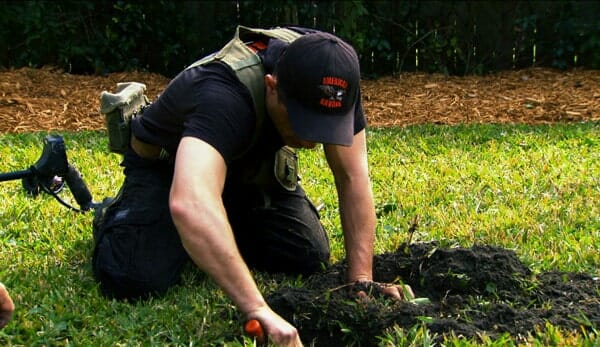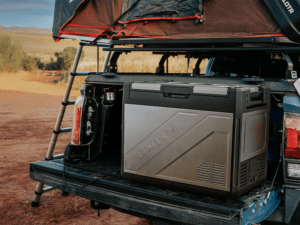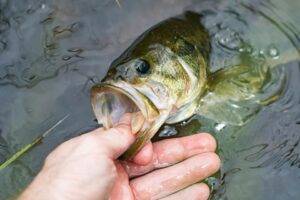
Whether you are headed out for your first treasure hunting adventure or trying to perfect your metal detecting skills, it is a good idea to learn essential metal detecting tips. Not only does doing so help you become more confident but, it also equips you with the skills to make the activity more successful. Check out the 5 essential metal detecting tips below to make your next adventure a success.
Get The Proper Tools
Before you begin metal detecting, you must first invest in the right tools. For a beginner, for example, a metal detector that has too many features may be a little impractical. After all, before you even learn how to use the features, you will be struggling to get used to the activity.
A standard beginner version goes a long way because it prevents from making user errors and complicating the navigation. In addition to its simplicity, a standard beginner metal detector tends to be cheaper so you don’t have to spend a lot as you begin to pursue the activity.
Yet, you must remember that it is not only about finding the cheapest metal detector on the market. You have to consider other key factors when choosing a metal detector. These include the terrain you intend to work on. For example, if you plan on working near water or in a wet climate, you want to invest in a waterproof metal detector.
So, before you purchase one, do in-depth research about the particular metal detector you have in mind – whether by talking to an expert at the nearest store or scanning through a myriad of resources available online.
Furthermore, as a beginner, you should also invest in extra accessories such as a pinpointer, if you can afford it. This is because as a beginner, it is not easy to pinpoint the exact location of your metal detector’s beeping origin. Thus, having a pinpointer or a metal detector that’s built with one, makes the process easier.

Prepare To Find Trash
Another key trait of being a good treasure hunter is accepting that you will find trash- lots of trash – more trash than treasure. When you start digging up after multiple beeps from your metal detector, your blood will surely rush through your veins during the early days.
However, this adrenaline rush will only be met with piles of junk and off-putting scraps. You should take this as a learning curve. Going through this phase, allows you to learn more about the activity. You’ll learn how your metal detector reacts to different materials. Over time, you will even be able to tell that what’s making your metal detector beep in a certain way is nothing more than just a pile of rusted iron metal sheets. This is no to say that an occasional environmental clean up isn’t a good idea.
You can also strengthen your skills off the field. Watch online how-to videos or join a local metal detecting club or group to find fellow treasure hunters. When you put your mind to it, over time, you will begin to effortlessly pick up on even the most complicated skills.
Pick Up On Basic Skills To Become Better
As much as metal detecting skills are mastered over time, there are also basic skills you can pick up and practice in the beginning. A good example is knowing how to pair your searching tools. For instance, if you are metal detecting in areas such as trash sites where you are most likely to find treasure on the surface, a smaller search coil that measures not more than 6 inches is perfect.
However, if you are searching in an area of greater depth or larger scanning area, then, a larger search coil is a better choice due to its higher frequency range. Furthermore, as you being to metal detect, keep displaying your patience. In this case, it may be tempting to quickly sweep through your scan areas, especially when the area is large. However, this is not always wise. Instead, overlap your scans to ensure you have thoroughly covered the scan area.
Know Where And When To Detect

This is a smart move for a treasure hunter. Choosing to metal detect in the right areas and at the right time, increases your chances of success. For example, metal detecting after it has just rained yields better results than when you do it on dry ground. This is because wet ground bears a higher conductivity than dry ground. It is also easier to dig wet grounds than dry ones.
Sure, it may be wet, muddy, and miserable outside, but, your mood will change as soon as you begin to pocket the treasure. Whilst it may not be particularly comfortable for some people to metal detect in high traffic areas, you are also more likely to find treasure in these areas.
Some of the common areas that are always packed with treasure include;
· Beaches
· Picnic areas
· Sports fields
· Playgrounds
· Parks
· Historical sites
Learn The Rules, Laws, And Regulations
Before you begin to impose yourself on areas that may otherwise be restricted by laws or regulations, it’s a good idea to do your research. The number one thing to do is to narrow your search to the area you want to metal detect. For example, certain city-owned parks may be restricted to metal detecting to a certain period.
If you are in a foreign country, the rules may get more complicated because you have to consider the cultural element. Furthermore, treasure hunting integrates a wide selection of artifacts and treasures. If you are treasure hunting on someone’s property, you may have a signed agreement that stipulates how your findings will be handled.
You may have to turn them over to the owner or keep them to yourself. In other instances, you may discover a treasure of historical or cultural significance. This will compel you to turn over your findings to the immediate authority, historians, or even the native tribes.
Whilst the 5 metal detecting tips above are a foundation towards a successful treasuring hunting adventure, you will find that you learn more along the way. All on the way to being a top notch treasure hunter.








